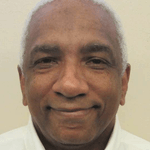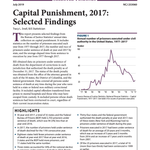
NEWS — October 18: The Nebraska Supreme Court has dismissed a challenge to the state’s execution protocol brought by the Rev. Stephen C. Griffith and State Senator Ernie Chambers, who had alleged that the Nebraska Department of Correctional Services had failed to comply with statutorily and constitutionally required procedures in adopting the protocol. The court did not uphold the protocol, but ruled that Griffith and Chambers lacked standing to challenge it because they “do not face death sentences” and the protocol therefore “does not impair or threaten to interfere with their legal rights.”

NEWS — October 17: The United States Court of Appeals for the Eleventh Circuit has affirmed a district court ruling that overturned the death sentence imposed on Georgia death-row prisoner Lawrence Jefferson in 1986. The court found that Jefferson’s trial counsel had been ineffective for failing to investigate and present available mitigating evidence, including ignoring a request by a defense mental health expert to have Jefferson tested for brain damage resulting from an accident when he was two years old in which his head had been run over by an automobile.
The ruling came nine years after the U.S. Supreme Court had vacated an earlier decision by the circuit court that had dismissed Jefferson’s ineffective assistance claim. This time, the appeals court ruled that the state courts had failed to provide Jefferson a full and fair post-conviction hearing when — without changing a word and without giving Jefferson’s lawyers an opportunity to respond — the trial judge adopted an order proposed by the prosecution that contained glaring errors, including describing witnesses who had never testified.

NEWS — October 16: Georgia has issued a death warrant scheduling the execution of Ray Jefferson Cromartie for the seven-day period between October 30 and November 6. The trial court recently denied Cromartie’s motion to permit DNA testing of physical evidence in the case and issued the death warrant before he could obtain review of that ruling by the Georgia Supreme Court. Cromartie’s lawyers argue that the witnesses against Cromartie have recanted their testimony or had motive to lie and that DNA testing will show that he was not the shooter. See Upcoming Executions.
NEWS — October 16: The U.S. Department of Justice has posted notice in the Federal Register seeking public comment on the proposed extension of information gathering for the Bureau of Justice Statistics’ Capital Punishment Report of Inmates Under Sentence of Death. Each year, BJS collects information on the demographic characteristics of prisoners on death row, their legal status at the time of the capital offense, the capital offense for which they are imprisoned, the number of death sentences imposed, criminal history information, the reason for their removal from death row and their current status if they are no longer under sentence of death, including the method of execution or cause of death by means other than execution. BJS also collects information on the status of state and federal death penalty laws and any changes to those laws that occurred during the course of the year. The deadline for submitting comments is December 16.

NEWS — October 15: The U.S. Court of Appeals for the Eleventh Circuit has overturned the death sentence imposed on James McWilliams by an Alabama trial judge in 1986. In June 2017, the U.S. Supreme Court ruled that Alabama had unconstitutionally denied McWilliams the assistance of an independent mental health expert at his trial and returned the case to the 11th Circuit to determine whether McWilliams was entitled to a new sentencing hearing. The appeals court ruled that the denial of expert assistance was “structural error” that required granting McWilliams a new sentencing hearing without need for a case-specific consideration of prejudice. Judge Adalberto Jordan disagreed that the error was structural, but concurred in the outcome on the grounds that the violation was prejudicial to McWilliams.




